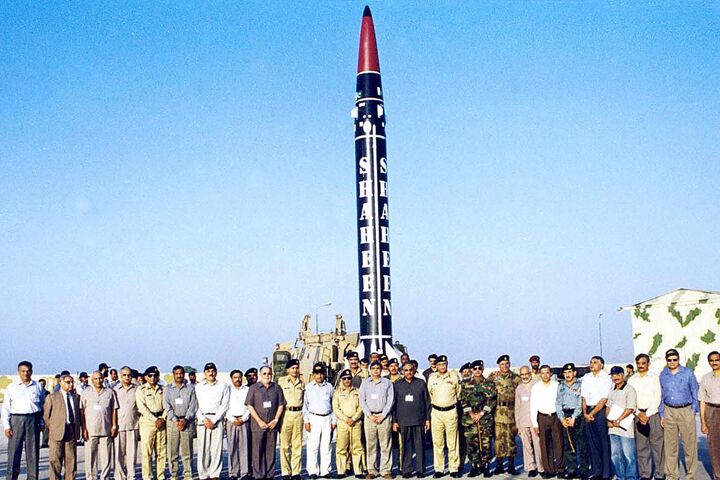
World in Greater Danger of Nuclear War Says Think Tank
The threat of nuclear war is high and rising, says an independent British think tank.
“Nuclear weapons are present today in some of the most unstable and violence prone regions of the world, and in Northeast Asia, the Middle East and South Asia, there are serious conflict and proliferation concerns that suggest an increased potential for nuclear weapons use,” wrote UK think tank British American Security Information Council (basic).
It notes that since the mid-1980s, the number of global nuclear states has decreased, but “the number of nuclear weapon states has gone up.”
In more recent history, nuclear weapon states are upgrading their weapons and increasing their numbers. “Long-term nuclear force modernization or upgrade programs are underway in all nuclear-armed states,” it writes. “Hundreds of billions of dollars are earmarked for spending over the next decade, not only in the United States and Russia but in major development programs in China, India, Pakistan and elsewhere.”
And in case anyone was hoping for nuclear disarmament, basic writes that “there is little sign in any of these nuclear-armed states that a future without nuclear weapons is seriously being contemplated.” The New Strategic Arms Reduction Treaty (start) between the U.S. and Russia “contains significant gaps that mean it will not necessarily lead to significant reductions in the number of nuclear weapons held by both parties,” it notes.
“Whatever the current rhetoric about global nuclear disarmament from the nuclear-armed states and others, in the absence of any further major disarmament or arms control breakthroughs, the evidence points to a new era of global nuclear force modernization and growth,” the report says.
One of the biggest concerns is the fastest-growing nuclear arsenal in the world: Pakistan. It is on course to become the world’s fourth-largest nuclear power, above France and the United Kingdom.
The December edition of The Atlantic magazine contains a shocking article about the state of Pakistan’s nukes. Since the U.S. killed Osama bin Laden in May, Pakistan has become even more concerned about the security of its weapons—that is, keeping them secure from the U.S.The Atlantic reports that “the Pakistani government is willing to make its nuclear weapons more vulnerable to theft by jihadists simply to hide them from the United States, the country that funds much of its military budget.”
To prevent the U.S. from destroying the nukes in a surprise attack, its spread them out farther and farther across the country. More worryingly, The Atlantic wrote, “Instead of moving nuclear material in armored, well-defended convoys, the [Strategic Plans Division] prefers to move material by subterfuge, in civilian-style vehicles without noticeable defenses, in the regular flow of traffic.” Citing a “senior U.S. intelligence official,” it says this “nuclear material” includes not just components, but complete nuclear weapons.
The U.S. would have a hard time destroying or safeguarding Pakistan’s nukes. “Anyone who tells you that they know where all of Pakistan’s nukes are is lying to you,” Gen. James Jones is reported to have said.
Trumpet editor in chief Gerald Flurry summed up the state of the world’s nuclear weapons in July 2009 by saying: “Intelligence agencies and defense experts now say that North Korea has the power to destroy major cities in South Korea and Japan at this very moment. The Taliban terrorists could soon conquer a nuclear Pakistan. And the whole world knows that Iran could become a nuclear power extremely soon. That means that three madmen could possess nuclear weapons in a few months!”
The nuclear threat is becoming more dangerous, not less. For more information on the only solution to this threat, see our article “Major News Sources Ask: Will Christ Ever Return?”
